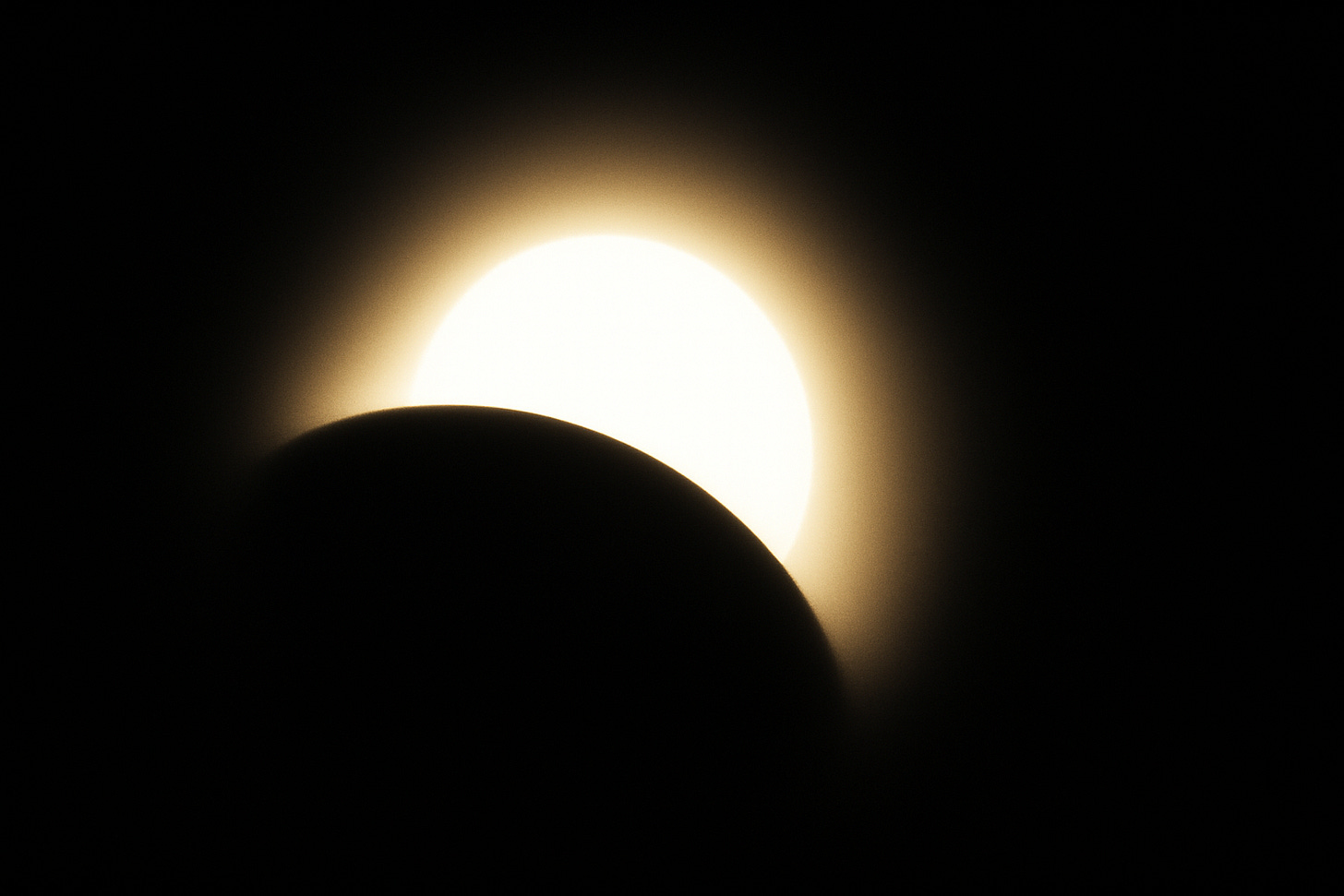Light
A prose poem
(content warning)
There is no sound.
That is the very eeriest thing.
It’s all over by the time I see the light. The rest is just the curtain descending. I am somehow, impossibly, preserved to be witness for nothing. One whole second, stretched nearly but not quite to eternity.
Sitting at the table by the park, the paper coffee cup just coming away from my lip, latte milk, water, and sugar on my tongue, passing between my teeth. The outdoor speakers of the café in that brief silence between songs, amplifiers already pushing with the first hertz not yet transferred to the air.
Across from me my friend, his phone turned partway over in the act of checking it. Dressed like me for the brisk fall weather. His smile.
A thousand meters overhead, traveling many times faster than sound, a conical aeroshell reaches the exact altitude some technician programmed into it years ago. Thermal batteries send a blast of electrons through a pulsed neutron tube that spits a spike of chargeless particles into a sphere of underworld metal - plutonium - while, in the same nanosecond, firing the detonators on a mosaic of pentagons and hexagons of insensitive high explosive. The spike seeds fission; the shaped detonations fold the uranium tamper and plutonium pit inward. Each split throws two or three more neutrons into the dark.
The energy of these fissions outruns the collapsing metal, spills out past the still-inward tamper and ricochets inside the hardened uranium radiation case. In effectively the same instant it flashes the foam-fog inside into plasma. That light-pressure crushes the secondary: a cylinder of heavy metal around a lithium compound buckles inward toward its spark plug, a fissile rod driven supercritical by the converging shock.
Now, for a few nanoseconds, there is a star a thousand meters over our heads, but we can’t see it yet.
My perception slowed and extended, there is the faintest pinprick of light. Already everything is over for everything I can see: the first light outruns the wind. The bomb’s soft x-ray flash dies in the air around it, blowing an ionized shell; what reaches us is light—white and then whiter—that drives electrons in surfaces hard enough to break bonds and start them burning. Chemistry buckles: paints blister, skin and eyes scorch, water flashes to steam in films; thin things char before the air moves. My hand, the paper coffee cup, the lady at the counter, the asphalt in the road, the pigeon in flight, my friend’s face. The verdict already written, to be carried out in milliseconds and seconds.
I am already ash without flame, already ruin without force.
Around the pinprick, a darkness rims it: the newborn fireball drives a shock that turns the air into an opaque skin—an eyelid blink of milliseconds. The first flash dips; then, as the fireball grows and thins, the second, harder blaze pours out.
Shadows knife sharp, then soften, then wash out as the sky itself glows. Heat isn’t felt as warmth at first—it is a shove of light on the skin, then the air itself arrives as pressure, weight, force. Something so violent, so absolute, a single breath dispersing candle smoke. Except the breath is a city’s width.
And everything, everything, everything is gone.
And then: the thunder.


